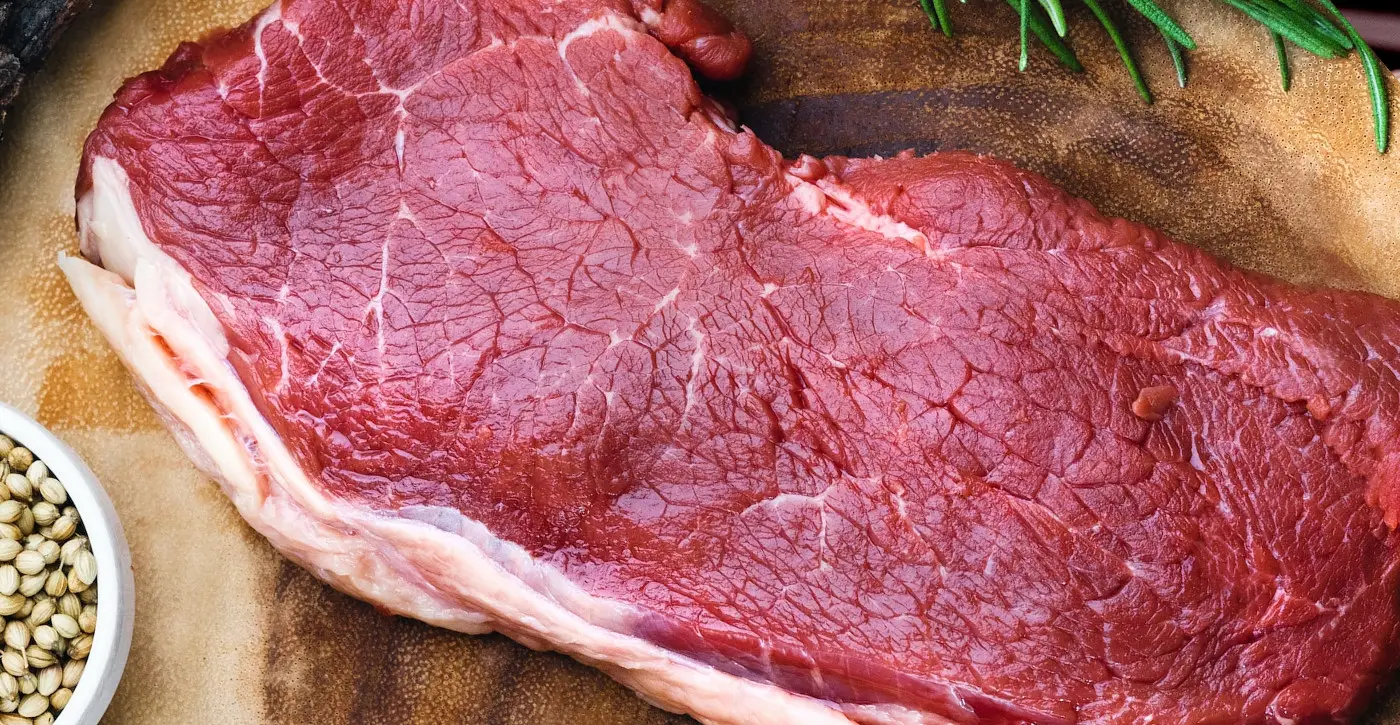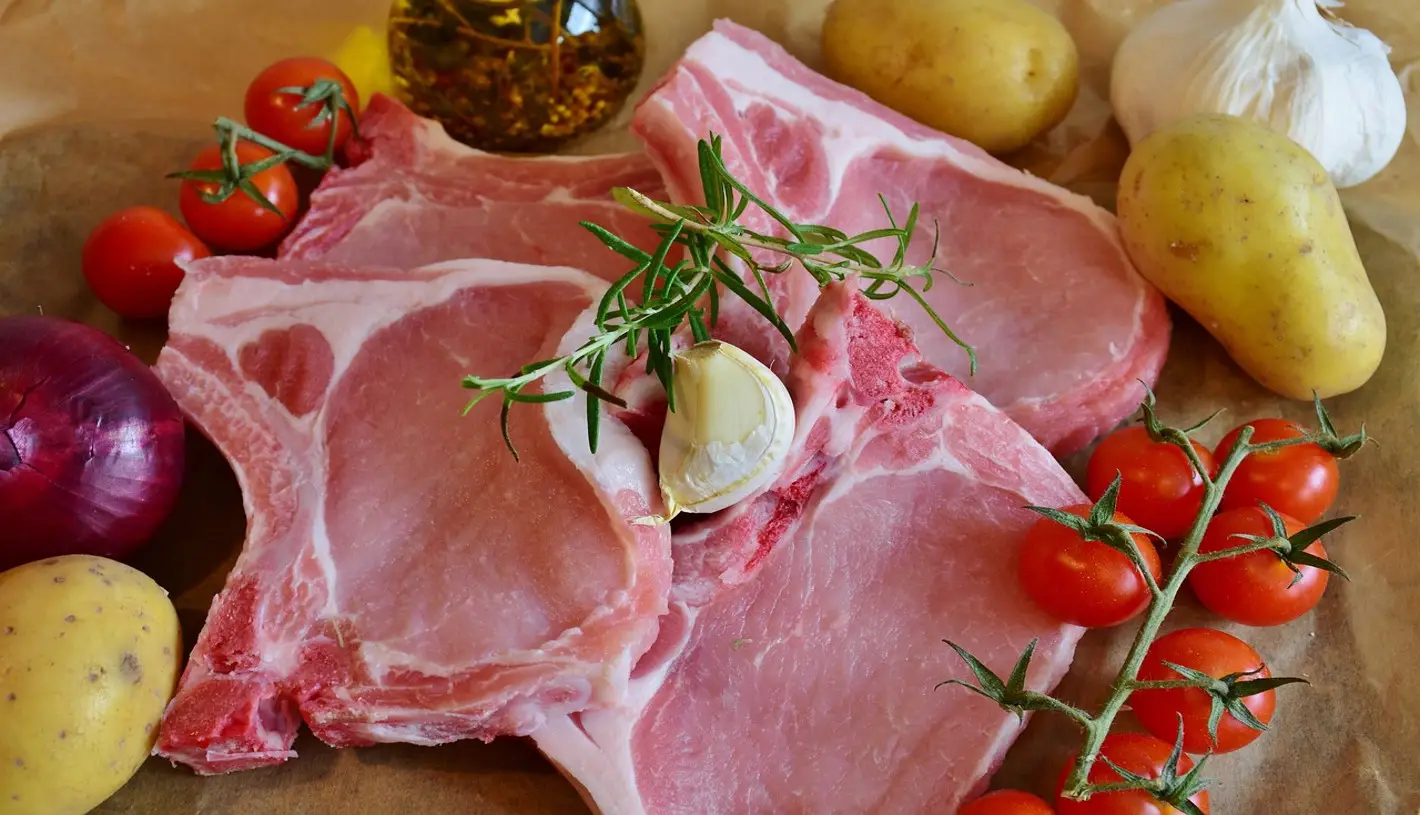Canadian Bacon Lysine and Arginine Info Sheet
Overview
Canadian bacon is a type of cured pork that is made from the loin, rather than the belly.Canadian bacon is a leaner and less salty alternative to regular bacon, but it still contains sodium, nitrates, and saturated fat.
| Name | Lysine (mg/100g) | Arginine (mg/100g) | Ratio |
|---|---|---|---|
| Canadian Bacon | 1625.6mg | 1123.4mg | 1.445 |
Canadian Bacon contains 1625.6mg of Lysine and 1123.4mg of Arginine per 100g of product.
This means Canadian Bacon has a high Lysine-Arginine ratio of 1.445.
Because Canadian Bacon contains slightly more lysine than arginine, increasing its consumption may benefit people who suffer from herpes, as it may boost the immune system.
Lysine Considerations
Canadian bacon has a very high amount of lysine, which is an essential amino acid that supports protein synthesis, collagen formation, and immune function.
It is one of the nine amino acids that the body cannot make by itself, so it has to come from the food we eat.
Lysine has many functions in the body, such as helping with growth, healing, energy, immunity, and collagen production.
Lysine may also have some effects on the herpes virus, which causes cold sores and genital sores.
Studies have suggested that taking lysine supplements or applying lysine cream may help prevent or treat these infections by blocking the amino acid arginine, which the virus needs to grow.
Arginine Considerations
Canadian bacon has a high amount of arginine, which is a semi-essential amino acid that plays a role in wound healing, nitric oxide production, and urea cycle.
Arginine has many functions in the body, including wound healing, helping the kidneys remove waste products from the body, and maintaining immune and hormone function.
Arginine also plays a role in the replication of the herpes virus, making it a key factor in cold sore outbreaks.
The herpes virus requires arginine to grow, replicate, and create new herpes viruses.
Foods a good source of arginine, such as nuts and chocolate, may increase the frequency and severity of these outbreaks.
Lysine-Arginine Ratio
Canadian bacon has a high lysine-arginine ratio, which may be beneficial for people with herpes simplex virus (HSV) infections, as lysine may inhibit the replication of HSV, while arginine may enhance it.
The herpes simplex virus, which causes oral and genital herpes, needs arginine to multiply and infect cells.
Lysine, on the other hand, can interfere with the absorption of arginine in the intestine, and thus limit the availability of arginine for the virus.
By eating a diet higher in lysine than arginine, one may be able to prevent or treat herpes symptoms.
Foods that have a high lysine-arginine ratio include milk and cheese, fish, poultry, fruits, and vegetables.
These foods can supply the body with sufficient lysine to compete with arginine and inhibit the virus from replicating and causing flare ups.
Dietary Considerations
Red meats are abundant in protein and lysine, but they also contain more fat and cholesterol than poultry or fish.
Red meats can help prevent or treat herpes outbreaks, as lysine can block the activity of arginine.
Red meats also contain zinc, iron, and vitamin B12, which are essential for immune function and nerve health.
Beef and pork are some of the red meats that have more lysine than arginine, with almost as much as poultry.
Despite this, red meats should be consumed in moderation, as they can increase the risk of cardiovascular diseases and some cancers.

For instance:
Eating a balanced and nutritious diet that supports your immune system and reduces inflammation.
This means consuming plenty of fruits, vegetables, whole grains, lean protein, and healthy fats, and avoiding processed foods, added sugars, alcohol, and caffeine.
Drinking enough water to keep yourself hydrated and remove toxins from your body.
Water can also help prevent dryness and irritation of the skin and mucous membranes, which can result in fewer outbreaks.
Consider taking l-lysine supplements, which can help prevent herpes outbreaks and stop a cold sore before it emerges by limiting the availability of arginine for the virus, which it requires to produce a cold sore.
Avoiding foods that can cause allergic reactions or sensitivities, such as gluten, dairy, nuts, eggs, or shellfish.
These foods can trigger inflammation and weaken your immune system, making you more susceptible to outbreaks.
Pain, swelling, and itching can be reduced by eating foods that have anti-inflammatory, antiviral, and antibacterial properties, such as honey, yogurt, aloe vera, and chamomile.
These foods can also help you heal faster by promoting tissue repair.
Check more food information






